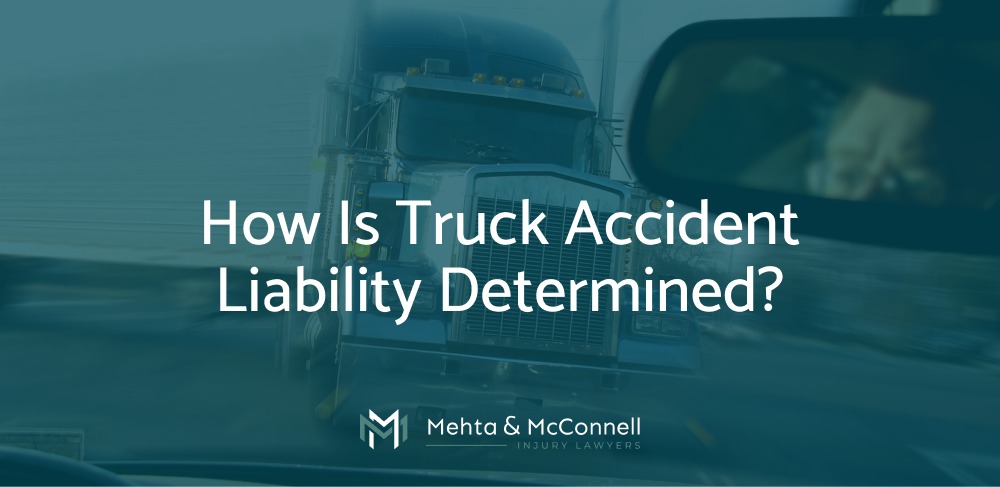
Unfortunately, truck accidents are common occurrences on North Carolina’s roads, with the state’s bustling transportation industry contributing to many of these incidents. Understanding how to determine liability in truck accidents is crucial for anyone involved in such a situation. This blog aims to provide compassionate and informative insights into this complex issue.
Prevalence of Truck Accidents in North Carolina
North Carolina’s extensive network of highways and interstates sees considerable commercial truck traffic. The North Carolina transportation industry and terrain significantly impact the number of truck accidents in the state. Here are some factors that lead to many truck accidents and may help drive your conversation regarding who is liable in a truck accident.
Highway Infrastructure
North Carolina’s extensive highway network, including major interstates like I-40, I-85, and I-95, facilitates the movement of commercial trucks across the state and beyond. The high volume of truck traffic on these highways increases the likelihood of accidents, especially in congested areas or during peak travel times.
Rural Areas and Terrain
North Carolina’s diverse terrain, including mountainous regions, coastal areas, and rural landscapes, presents unique challenges for truck drivers. Mountainous terrain, in particular, can be challenging to navigate, with steep grades and winding roads increasing the risk of accidents, especially when combined with adverse weather conditions.
Urban Centers
Cities like Charlotte, Raleigh, Greensboro, and Winston-Salem are major hubs for commerce and industry. The concentration of businesses and population centers in these urban areas increases truck traffic, making collisions more common, especially in areas with heavy congestion or complex road layouts.
Port and Logistics Centers
North Carolina’s ports, such as the Port of Wilmington and the Port of Morehead City, play a significant role in shipping goods in and out of the state. Trucking is often the primary mode of transportation for goods moving to and from these ports, contributing to the overall truck traffic and the potential for accidents on connecting highways and roads.
Industry Regulations
The transportation industry is subject to regulations and safety standards aimed at reducing accidents. However, compliance with these regulations can vary among companies and drivers, impacting the overall safety of truck operations on North Carolina’s roads.
Driver Fatigue and Hours of Service
Long hours on the road, tight delivery schedules, and pressure to meet deadlines can lead to driver fatigue, a significant contributing factor in truck accidents. North Carolina’s transportation industry, like many others, grapples with issues related to driver fatigue and adherence to hours-of-service regulations designed to prevent fatigue-related accidents.
Training and Safety Programs
Efforts to improve truck driver training, safety awareness, and compliance with regulations can help mitigate the risks associated with truck accidents. However, gaps in training or enforcement contribute to the incidence of accidents on North Carolina’s roads.
Who Is Liable in a Truck Accident?
Determining who is liable in a truck accident involves evaluating various factors. While the truck driver may bear responsibility in some cases, liability can extend to other parties as well. These may include:
Truck Driver
You may be wondering, “are truck drivers responsible for damages?” If the accident resulted from the driver’s negligence, such as speeding, distracted driving, or driving under the influence, they or their employer may be liable for damages.
Trucking Company
The company employing the driver can also be liable, especially if they fail to maintain the truck properly, enforce safety protocols, or pressure drivers to meet unrealistic deadlines, leading to fatigue or reckless driving.
Cargo Loaders
Improperly loaded cargo can contribute to accidents. If a third-party loading company or individuals were responsible for loading the truck in a way that caused the accident, they could share liability.
Maintenance and Repair Contractors
Accidents resulting from mechanical issues like brake failure or tire blowouts due to inadequate maintenance or faulty repairs may render the truck’s maintenance or repair company liable.
Who Determines Fault in an Accident?
Your attorney will be a crucial resource for determining the at-fault parties based on the evidence available. They will likely conduct an independent investigation to ensure they have all the information to move your claim or truck accident lawsuit forward. Bringing a claim against the correct party helps to maximize your compensation and minimize the time you have to wait to receive it.
Though the statute of limitations in North Carolina extends for three years from the date of the accident, the sooner you can start the process, the more likely you are to capture meaningful and timely evidence to prove who is liable in a truck accident.
Contact Mehta & McConnell
As a truck accident victim, you have legal rights to seek compensation for various damages, including medical expenses, lost income, pain and suffering, and property damage. Gathering evidence such as accident reports, witness statements, and medical records to support your claim and determine who is liable in a truck accident is crucial.
Consulting with an experienced truck accident attorney at Mehta & McConnell Injury Lawyers is highly recommended. Our team can provide invaluable guidance, negotiate with insurance companies on your behalf, and ensure your rights are protected throughout the legal process.
Contact us today for a free consultation, and let us help you confidently move forward. Your recovery and well-being are our top priorities.

